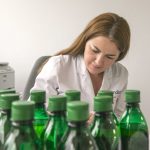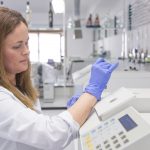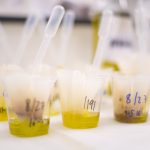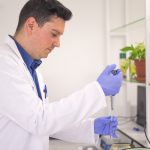Recognised by the IOC for advanced physical-chemical analysis, contaminants and residues and panel testing.
Just 7 laboratories in the world have achieved recognition in all three areas evaluated by the IOC – advanced physical-chemical analysis, sensory analysis and analysis of contaminants and residues.
The IOC now evaluates and recognises the technical expertise required for the detection of contaminants and residues.
Of the more than 20 Spanish laboratories to achieve IOC recognition in one area or another, Indlab, the public laboratories in Atarfe and Cordoba, and the Laboratory of the Ministry of Food & Agriculture, were the only three to achieve recognition in all three evaluation areas.
Basic and advanced physical-chemical analysis, analysis of contaminants and residues, and sensory analysis, are the categories under which the IOC evaluated and classified the laboratories, according to the expertise demonstrated through their working practices.
Indlab, together with the three aforementioned public bodies, were the only Spanish laboratories to demonstrate sufficient competence in all three areas evaluated by the IOC.
Spain continues to head the list of IOC awards, with over 20 laboratories officially named. 13 public and private bodies were recognised for their expertise in physical-chemical analysis, meanwhile 15 laboratories (13 public, 2 private) achieved recognition in the field of sensory analysis. Indlab was the only Spanish company to obtain recognition by the IOC in all three areas of expertise.
TABLE OF PHYSICO-CHEMICAL STUDIES REVIEWED BY THE IOC
| Basic | Advanced | Contaminants and residues |
| Acidity index Peroxide value K268/270 K232 Humidity Impurities |
Those included in A Ethyl esters Fatty acids Sterols and total sterols Biophenoles Tocopherols Spurious oils Waxes Aliphatic alcohols ΔECN42 Stigmastadiene 2-glyceryl monopalmitate Erythrodiol and uvaol Unsaponifiable matter |
Halogenated solvents Polycyclic aromatic hydrocarbons Benzopyrenes Benzoanthracene Benzofluoranthene Chysene Heavy metals Pesticide residues |








About the author